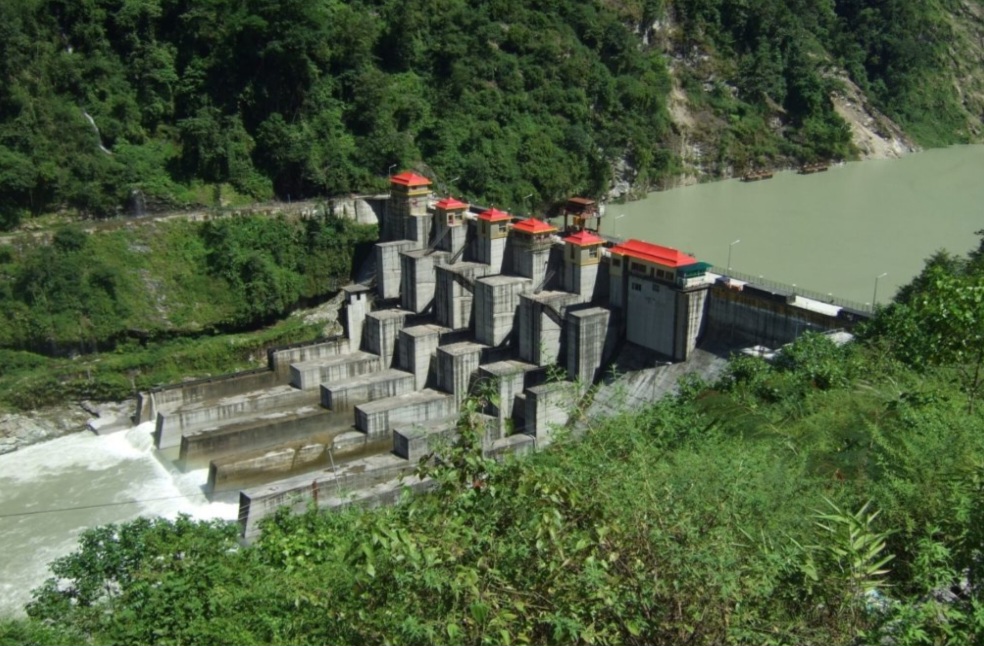By: Pritam Sarbabidya

The dispute between India and Bangladesh over the Teesta River project has been a hotly debated matter for long, constituting a notable piece of the South Asian geopolitical chessboard. These stakes have risen recently – thanks to China’s emergence as a significant actor. The complex interplay between India and Bangladesh on the issue of Teesta waters and the rise of China in this region have serious implications for the Indian foreign policy, security and strategic interests.
The Teesta River starts from Tso Lhamo Lake in north Sikkim at around 5,280 metres above sea level. It flows for approximately 150 km within Sikkim and another 123 km in West Bengal before it enters into Bangladesh via Mekhligunj in Cooch Behar district; then it flows for another 140 km in Bangladesh until it empties into Bay of Bengal. Teesta is the fourth largest transboundary river flowing into Bangladesh with about two thousand seven hundred fifty square kilometres floodplain area but mainly eighty three percent of its catchment area falls under India while remaining seventeen percent lies within Bangladesh.
The deal was also opposed by West Bengal Chief Minister Mamata Banerjee, who said the proposed merger would have a negative impact on North Bengal’s agricultural sector. In 2019, Mamta Banerjee admitted that Bangladesh suffered from nonsharing of Teesta water. In early 2017, the West Bengal CM also mentioned other proposals for sharing water of Torsa, Manshai, Sankosh and Dhansai but did not mention the Teesta River. The agreement once again came into discussion with the visit of Bangladesh PM to India on June 22, 2024.
During this meeting, PM Modi said that a team of experts will visit Bangladesh to discuss conservation and management of the Teesta River. Next is the statement made by the Prime Minister of Bangladesh during his visit to China. He said that he preferred India over China in theimplementation of the “Teesta Plan”. In early 2020, China announced a major project in waterdredging and lake and dam construction that is expected to cost $1 billion.
For India, the Teesta River project is not a bilateral issue with Bangladesh, but an important issue related to the regional power. China’s presence in India is difficult for India’s security calculations. The project has significant geographical implications for India. The project is located near the important “Chicken’s Neck” or Siliguri Corridor, a narrow strip of land connecting India’s northeast with the rest of the country. India’s concerns include the proximity of Chinese personnel to this sensitive region and the broader regional impact of China’s development in Bangladesh. India must strengthen its security apparatus and increase surveillance to reduce the threat from China. India also cannot afford one of its immediate neighbours i.e. Bangladesh to get closer with its aggressive opponent ‘China’, specially learning from the past deal in case of Sri Lanka, not taking up the deal of the Hambantota Port.
China’s interest in the Teesta River project is not about water management; It covers broader strategic interests. China’s Belt and Road Initiative, which aims to improve Asia’s infrastructure, has impacted investments and projects in Bangladesh. Joining the Teesta River project would allow China to gain a foothold in India’s backyard, a move that will irritate New Delhi.
Another part of the story shows that the water conflict in South Asia has the potential to turn into a serious situation and is currently affecting the region. India’s participation in “water diplomacy” and its emphasis on fair and shared swimming is very important in preventing such incidents.This also relates to the environmental matrix. Any development of the river should also be given priority in terms of environmental sustainability. Environmentalists, for example, have also expressed concern about the plan, citing the October 2023 release of a glacial lake in the Teesta basin that caused the deaths of many people and the destruction of the Teesta III hydroelectric power station.
Cooperation with China may be attractive for Bangladesh as it can receive support. However, the longterm impact of this partnership needs to be analyzed more carefully. Therefore, India needs to increase its negotiation efforts to resolve the issue and ensure the consensus of West Bengal leaders on the issue. Under Indian law, transboundary water sharing agreements require approval from state governments. Therefore, India should engage in peacekeeping policies to ensure that its actions are not perceived as aggression or negligence by Bangladesh. Failure to address Dhaka’s concerns could push Bangladesh further into Beijing’s world and undermine India’s efforts to maintain its influence in South Asia.
Teesta Water Project highlights the interplay between geopolitics, development and security dynamics. China’s entry adds a new challenge to India’s strategic thinking and requires a well-thoughtout and thoughtful response. As India and Bangladesh advance on the chessboard, dip lomacy,cooperation and strategic solutions are crucial to ensure regional stability and shared success through cooperation. The Teesta River is a vital lifeline for millions of people and has the potential to become a symbol of ‘cooperation’ rather than ‘competition’ and uphold India’s philosophy of ‘co-operation’, creating a better future for both countries.


BaddieHub Pretty! This has been a really wonderful post. Many thanks for providing these details.
I have read some excellent stuff here Definitely value bookmarking for revisiting I wonder how much effort you put to make the sort of excellent informative website
Hello, Jack speaking. I’ve bookmarked your site and make it a habit to check in daily. The information is top-notch, and I appreciate your efforts.